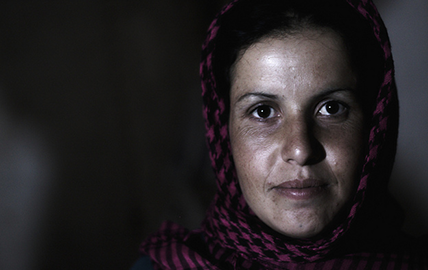Jordan moves towards ending discrimination against women and their children in nationality laws
Shireen lives in Jordan with her children and her non-Jordanian husband. Due to the discrimination in the country’s nationality law, her passport is stamped with the note: “Children are not permitted to be included in the mother’s passport because of her husband’s different nationality”.
Shireen’s marriage is troubled, and she lives in constant fear that her husband might leave with their children – who are included on his passport. She thinks the best option for her daughter is to marry early to a Jordanian, who can help give her a sense of protection and security, which she currently does not have.
 Against this backdrop of hardships endured by women like Shireen and her daughter, this week’s announcement by the Jordanian government that steps will be taken to improve aspects of the country’s problematic laws on nationality and citizenship should be welcomed.
Against this backdrop of hardships endured by women like Shireen and her daughter, this week’s announcement by the Jordanian government that steps will be taken to improve aspects of the country’s problematic laws on nationality and citizenship should be welcomed.
Among other benefits and under only certain circumstances, children of Jordanian women married to non-nationals will be able to own property, invest in a business, obtain a driving license and other personal identification documents, enrol in government schools and seek care in government medical facilities.
All of these benefits depend on their Jordanian mother being a permanent resident of Jordan for at least five years and the children also being legal residents.
While these new developments fall short of providing equal nationality rights, they represent a step in the right direction and are part of the growing global trend over the past decade towards addressing this harmful form of discrimination.
The Global Campaign for Equal Nationality Rights – an effort led by four NGOs and two United Nations agencies – was set up earlier this year to call on all governments to amend any nationality or citizenship laws that discriminate on the basis of sex.
Some countries have made progress, with Suriname the most recent country to allow mothers pass nationality to their children. However, dozens of others – including the Bahamas, which does not allow women to pass on Bahamian citizenship to their husbands or their children born outside the country – need to urgently follow suit.
While men can also be affected by discriminatory nationality laws, women tend to be disproportionately affected. Freedom of movement, anxiety and limitations in terms of social and legal rights are often experienced, while state services such as healthcare, education can be severely curtailed for their children.
Equality Now’s report on these laws, published in May this year, suggests that “losing her nationality of origin can leave a woman especially vulnerable if her marriage ends, particularly if her children have their father’s nationality. Even if a woman is able to claim back her nationality on divorce or widowhood, delays and other hurdles in regaining citizenship can cause her considerable problems, including anxiety and hardship”.
Nationality laws can be complex, but removing discrimination between men and women is not a complicated concept. We also urge governments to work towards eliminating all laws, policies and practices that discriminate on the basis of sex.
Laws that put women on an equal footing with men are essential to protect and promote the rights of women and facilitate their full political, social and economic participation.
Legal equality ensures women have a level playing field from which to make their own choices and realise their hopes and dreams. This benefits not only women, but society as a whole.
Suad Abu-Dayyeh is Equality Now’s Middle East and North Africa consultant.
This article was originally published on TrustLaw, a news service of the Thompson Reuters Foundation.
